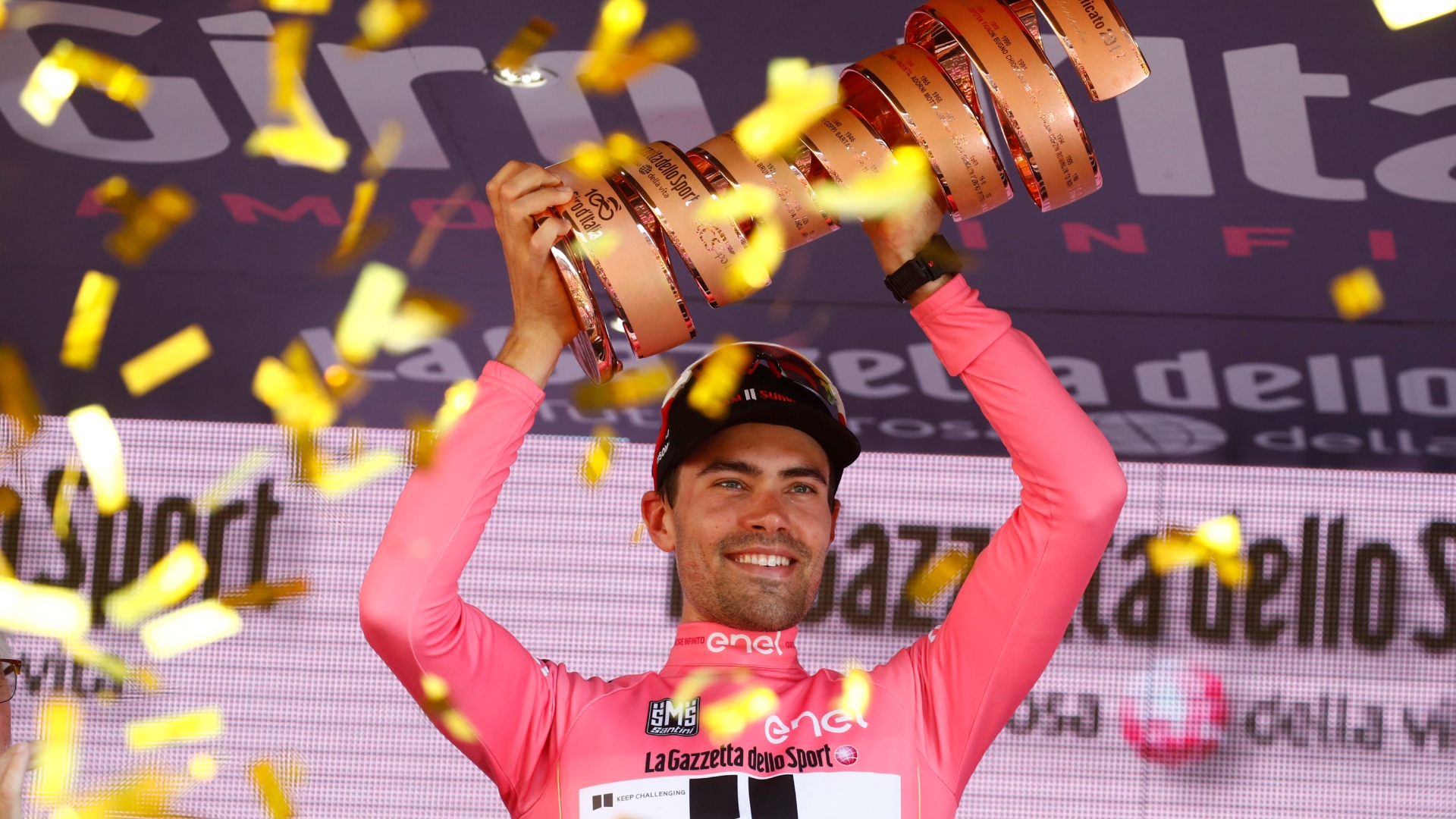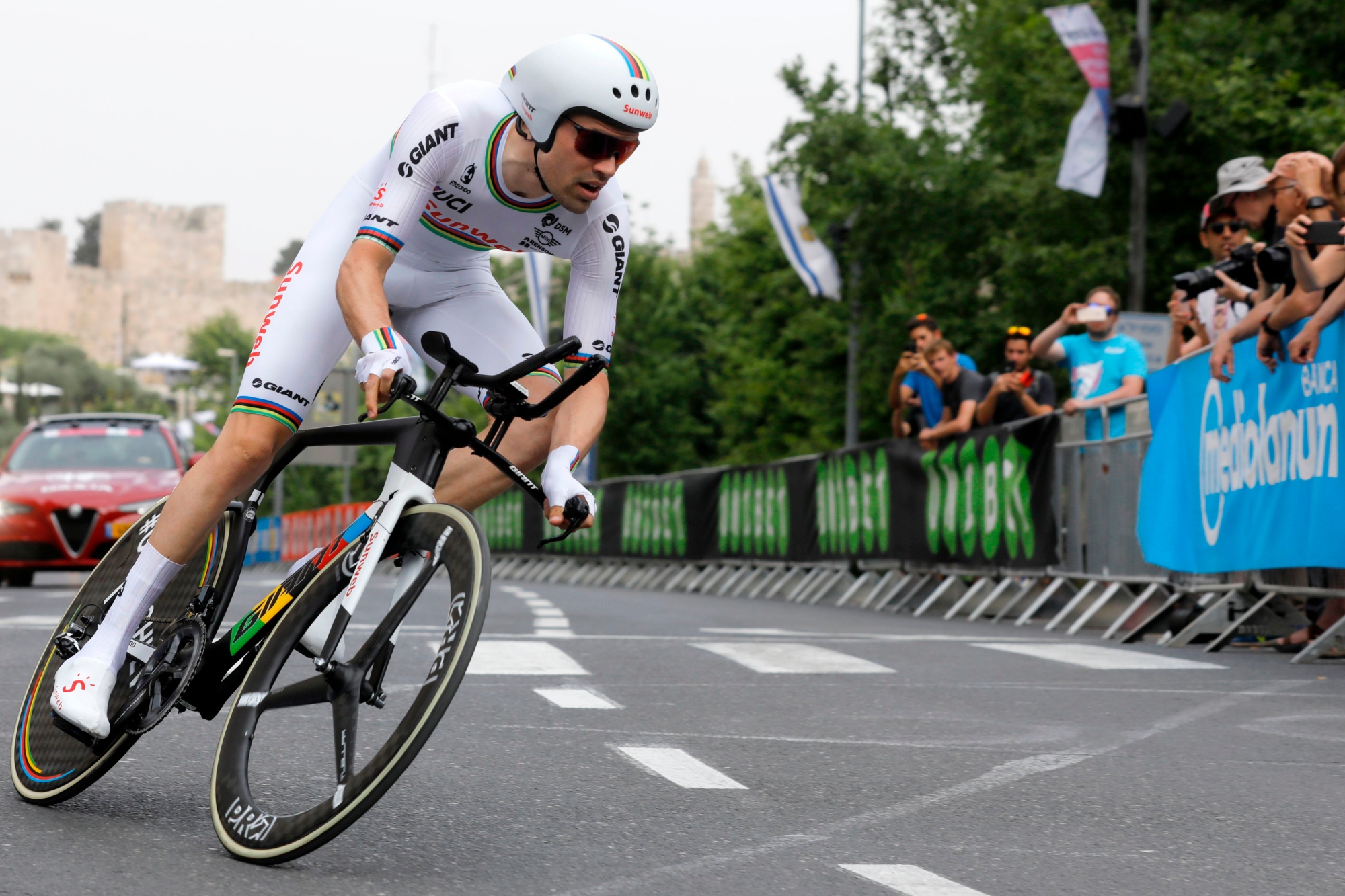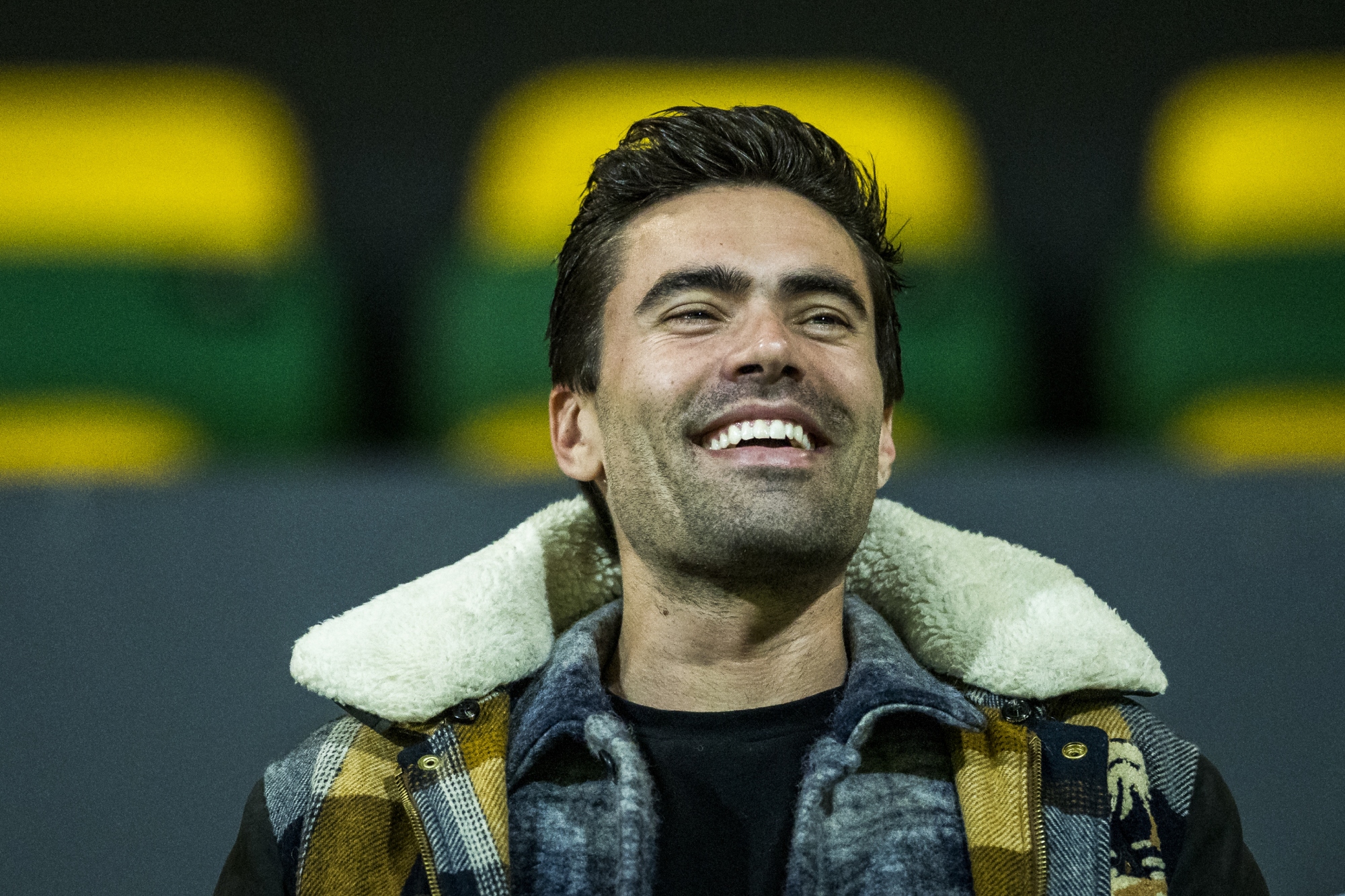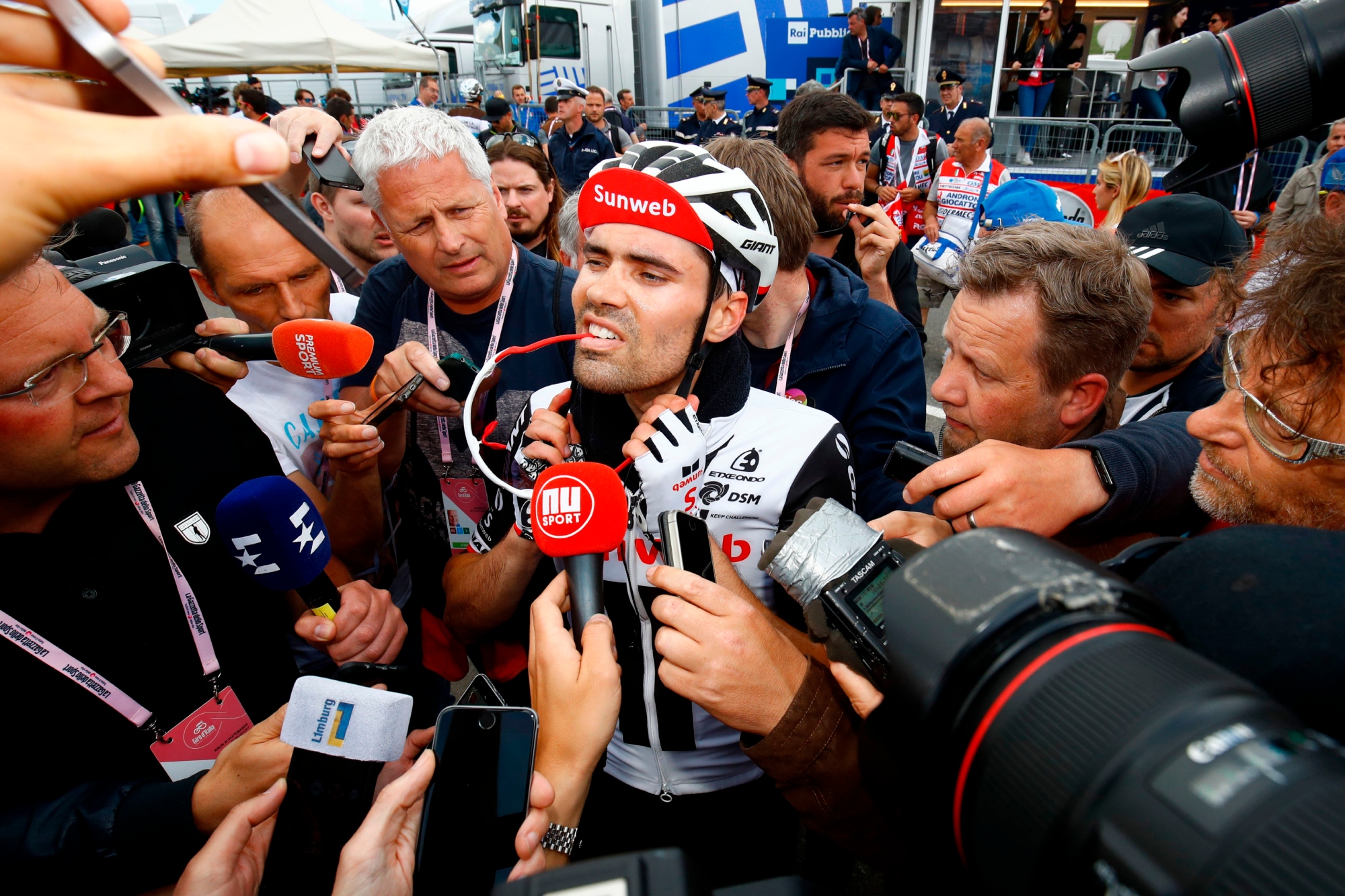
It’s been two-and-a-half years since Tom Dumoulin shocked the cycling world with his abrupt retirement. At the time, he was a grand tour classification leader for Jumbo-Visma, a decorated time trial champion, and at 31 years old, still very capable, as proven by his silver medal in the Olympic time trial in Tokyo. But emotionally, he was completely spent. The passion and the hunger for victories had been dimming for some time, and when the Giro d’Italia winner called it quits in August 2021, he seemed lost — crushed by the relentless pressure of a life on the bike that no longer brought him any joy.
Fast forward to today, and the picture looks very different — one filled with new purpose, a variety of projects and a boyhood love for the sport.
When I call the Dutchman, he’s just finishing a walk with his dog and five-month-old son, Oscar, enjoying some quiet family time before heading to America to pin on his first bib number in a while — this time, for some of the biggest gravel races in the world.
Yes, Tom Dumoulin will race Unbound this year, but first, he's headed to Monterey for the Life Time Grand Prix’s opening round later this week at the Sea Otter Classic. But before you start placing bets, he’s quick to clarify that he’s not there to chase podiums.
“I’ll do Unbound,” Dumoulin says casually, as if talking about a Sunday ride, not the world’s most iconic gravel race. “But only the 100-mile race” and “just to experience it. I absolutely have no intention of trying to win the thing.”
Dumoulin is headed to Unbound

While former teammate Laurens ten Dam and the rest of the so-called ‘Dutch Mafia’ are enjoying a second career in gravel racing, Dumoulin will not be following suit.
“Laurens [ten Dam] is still really competitive but that’s absolutely not my goal. The goal is just to enjoy riding a bike, to have fun and to share that message with the people around me and those who follow me,” the 34-year-old says.
He points out that while everyone likes to look up to Tadej Pogačar, Mathieu van der Poel and even himself during his peak years, that level of competitive cycling is attainable for only the very few.
“Most people just get on their bikes twice a week, purely for fun, and now and then they take part in an event and enjoy it. And that’s totally fine, too. Actually, I’m one of them now."
But is he, though?
His recent adventures suggest there’s still a quiet fire. At the Egmond-Pier-Egmond event earlier this year, Dumoulin took on the 'combi race' — a 36-kilometre bike race on sand on Saturday, followed by a half marathon on Sunday — and won.
Dumoulin laughs, admitting that he did “go deep” both those days. “But it’s not like I trained hard for it or followed a structured plan or anything.”
He’s approaching the 90-mile Sea Otter Classic gravel race and the 100-miler at Unbound in a similar fashion.
“Of course, I am not unfit. But I’m definitely not lining up at the start with more than 10 hours of training a week, you know? So I’m well aware that I’m not competing for the prizes. And that’s totally fine.”
Cycling now is purely about joy. If it’s not fun, he won’t do it. He’s done the 30-hour training weeks. He’s won the Giro d’Italia. He’s stood on the podium at the Tour de France.
“I have zero desire to sit on a bike for five hours every day. I’ve done that already — it was beautiful, but now it’s time for other things. That said, I still enjoy being part of those events but I’m not going to win them. And yeah, sometimes that’s a bit hard to accept. But I just don’t want to do the hard work anymore.”
Life After Racing

From co-authoring Op Gevoel (By Feel) to working as an analyst for Dutch broadcaster NOS, to delivering live theatre talks across the Netherlands, Dumoulin has found new ways to stay connected to the sport he once dominated.
In addition to his U.S. gravel appearances, Dumoulin is currently touring the Netherlands with a “theatercollege” based on the book — a uniquely Dutch format blends personal storytelling with a live on-stage interview. In it, he unpacks the beauty and hardships of professional cycling.
On opening night, 1,200 people filled the room to hear one of the nation’s greatest cyclists speak. At one point, Dumoulin stands alone on stage for a 20-minute monologue, recalling the darkest moments of his career — a vulnerable performance he calls both “challenging” and “exciting.”
Alongside his many accomplishments on the bike, this candidness to talk openly about the darker side of elite sports may just be one of his biggest contributions. He started that journey when he briefly stepped away to work on his mental well-being, citing that he had been “unhappy as a cyclist for a year.” Several months later, Dumoulin returned to win the silver medal in the men’s time trial at the 2020 Olympic Games. But the comeback was short-lived. By mid-2022, he cut his final season short, withdrawing from the UCI Road World Championships in Australia, saying his tank was empty.

When asked what he would have done differently in his career, Dumoulin doesn’t hesitate: “I wish I had communicated better.”
The past two-and-a-half years, he says, have been a journey of deep self-awareness.
“I know so much more about what makes me happy, how I function, who I am as a person, what I need from the people around me and what I can give to them when I’m my best self. I wish I had communicated that much earlier with the teams I rode for. I would’ve asked for more autonomy, more freedom within the framework of the team. I think I would’ve performed better with that.”
Reflecting on his final season at Jumbo-Visma, he adds, “The team and I didn’t really make each other better. And that’s a shame. We didn’t get much out of it.”
Dumoulin’s relationship with cycling has been a complex one — one of extreme highs and dangerous lows. Today, though, he has found peace with it. He has rekindled his boyhood love for the sport, and could be seen at the sidelines at the Tour of Flanders, not in service of the NOS but because he simply wanted to be there. As a fan. He still calls cycling “the most beautiful sport there is,” but acknowledges what it cost him. So when asked if he’s hoping little Oscar will follow in his dad’s footsteps, Dumoulin admits he "wouldn’t be jumping for joy.”
“Cycling has brought me so much. I truly gave it my heart and soul. And I still love watching it. But on the other hand, it’s also a very dangerous sport. There are fatal accidents, serious injuries, terrible crashes, and a closed-off world that can sometimes be very businesslike — not always focused on the well-being of the person behind the athlete. So, as a father, I’d probably say: maybe not.”
So when Dumoulin lines up at Sea Otter and Unbound, he’s not chasing ghosts of past performances. He’s not trying to recapture old form or prove anything to anyone — not even himself.
From packed theatre halls in the Netherlands to the gravel start lines in America, he’s riding for something else now: to share the joy of cycling — the feeling that made him fall in love with it all in the first place.







